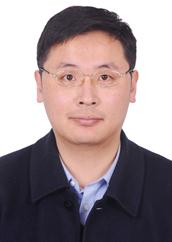


Biography: Dr. Jixi Zhang got his Ph.D degree in Materials Science and Engineering from Shanghai Jiao Tong University (Shanghai, China) in 2012 and did his post-doc research in Department of Natural Sciences at Åbo Akademi University (Turku, Finland) from 2012 to 2014. He is now Assistant Professor (Tenure Track) at Chongqing University, China. His work is defined by research and development in the fields of organic-inorganic composite mesoporous nanomaterials for biomedical applications. Dr. Zhang published over 30 papers in International Journals. He has been teaching undergraduate/graduate courses such as nanobiomaterials and technology, biophysical chemistry, etc. He is reviewer in various journals on advanced materials and nanotechnologies.
Speech Title: Surface Polymerization on Ordered Mesopores Toward Composite Nanocarriers for Improved Drug Delivery
Abstract: Successful surface modification of drug-interactive ligands is crucial part of porous material processing to construct the functionality of nanocarriers for controlling their interaction with drugs. In our study, surface growth of two different polymers was successfully developed in a composite material system on the basis of sub-100 nm sized mesoporous silica nanoparticles. The strategy was designed to enable a precise control over the density and spatial arrangement of the functional groups incorporated in the pores while retaining an open porosity for the accommodation of guest molecules. While surface hyperbranching polymerization of PEI lead to high payload of hydrophobic drugs and enhanced particle dispersity, the assistance of PEI tethered lipid bilayer addressed the challenge of extended retention of negatively charged hydrophilic drugs. For the PDA incorporation, the resulted material can effectively adsorb hydrophilic drugs with high loading capacities, facilitated by the π−π stacking interactions between the abundant aromatic rings of PDA and the aromatic backbones of drugs. A sustained drug release, as well as enhanced killing efficiency of cancer cells at low dosage, was facilitated by the developed composite material systems. These findings are expected to inspire strategies and pave a way for utilizing surface polymers for constructing advanced organic–inorganic composite nanocarriers.
Keywords: Mesoporous nanocarriers; Surface polymerization; Composite; Drug delivery.